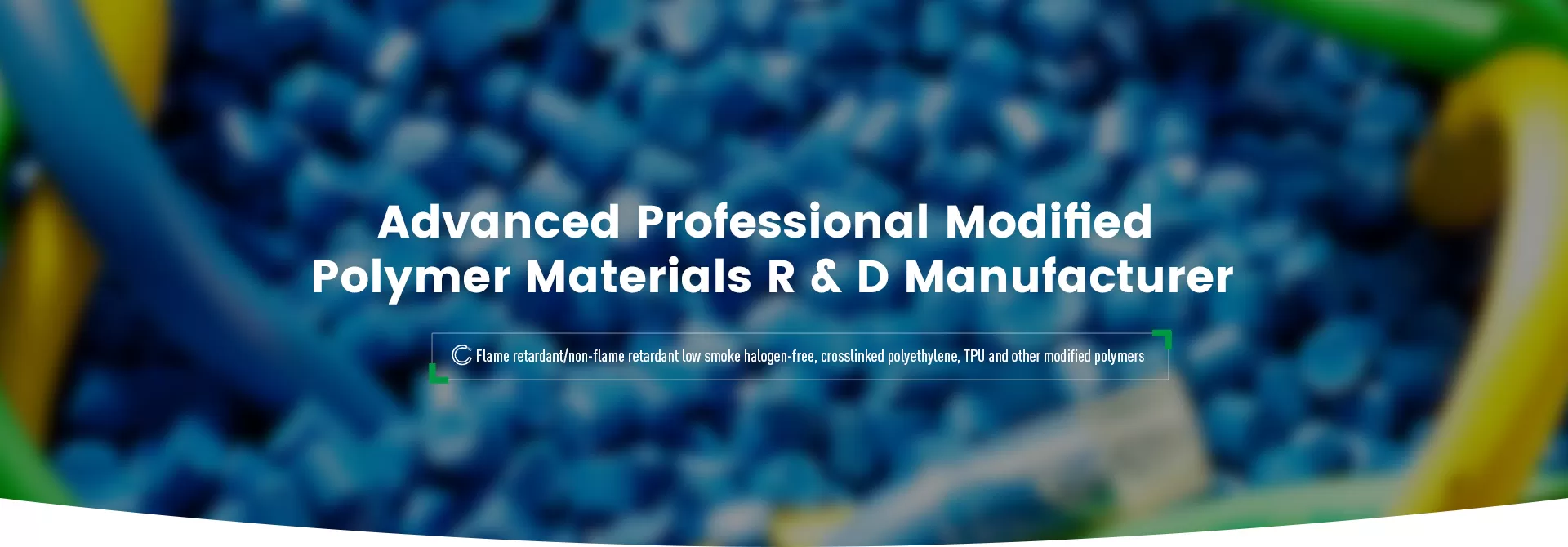
With the rapid growth of the new energy vehicle (NEV) industry, the requirements for cable materials are becoming increasingly stringent. Traditional cable materials struggle to meet the demands of high voltage, large current, high-temperature resistance, and wear resistance under complex operating conditions. As a result, high-performance polymers have gradually become the preferred choice. Among them, thermoplastic polyurethane(TPU)stands out due to its excellent mechanical properties, weather resistance, and chemical resistance, making it widely used in the manufacturing of NEV cables. This article analyzes its application advantages through specific case studies.
The power system, battery management system, and onboard charging equipment of NEVs all require high-performance cables with the following characteristics:
High-Temperature Resistance-During vehicle operation, cables may be exposed to high temperatures for extended periods, requiring materials with excellent thermal stability.
Wear Resistance-The compact wiring layout of NEVs results in frequent vibrations and friction, necessitating superior wear resistance to prevent cable damage.
Chemical Resistance-Cables may come into contact with oils, solvents, and other chemicals in different operating environments, requiring high resistance to chemical corrosion.
High Flexibility-In tight wiring spaces, cables must be highly flexible to accommodate complex bending and routing requirements.
A leading NEV manufacturer faced challenges with short cable lifespan and poor weather resistance while developing a new generation of electric vehicles. Traditional rubber and PVC cable materials degraded quickly in high-temperature, high-voltage environments, leading to performance deterioration. To address this issue, the company adopted TPU as the outer sheath material for high-voltage cables.
Implementation Plan:
Selected high-wear-resistant TPU material certified by UL to ensure stable performance under extreme conditions.
Applied advanced extrusion technology to enhance material uniformity and minimize defects during production.
Conducted rigorous weather resistance and chemical resistance tests to ensure reliable operation in various climatic conditions.
Application Results:
After 5,000 hours of aging tests, the mechanical performance retention rate of TPU cables exceeded 90%, significantly outperforming traditional materials.
In abrasion resistance tests, TPU cables demonstrated twice the wear resistance of conventional PVC cables, reducing insulation damage caused by friction.
Under extreme cold (-40℃) and high-temperature (120℃) conditions, TPU cables maintained excellent flexibility without cracking or breaking.

Angreen TPU Material for Automotive High Voltage Power Cable
Application Scenario: Connects the battery pack to the motor for high-voltage power transmission, typically operating at 300V-1000V.
Advantages of TPU:
Excellent electrical insulation to prevent current leakage.
High-temperature resistance (up to 125°C), suitable for long-term high-power operation.
Superior wear resistance for stable performance in demanding environments.
Case Study:
A well-known NEV brand adopted TPU as the outer sheath material for its 800V high-voltage cable system. Compared to traditional cross-linked polyethylene (XLPE), TPU exhibited a 30% improvement in weather resistance and tensile strength, significantly extending the cable’s lifespan.
Application Scenario: Used in onboard electronic systems, such as electric seats, smart dashboards, and vehicle cameras, typically operating below 100V.
Advantages of TPU:
High flexibility for easy routing in tight spaces.
Exceptional bending resistance, withstanding over 1 million bending cycles.
Lightweight design, reducing weight by 20%-30% compared to traditional rubber cables, thereby improving vehicle range.
Case Study:
An NEV supplier replaced PVC with TPU for low-voltage control cables in onboard electronics. This transition reduced cable weight by 25% and improved fatigue resistance, ensuring durability over prolonged use.
Application Scenario: Used for AC/DC charging stations, typically operating between 400V-1000V.
Advantages of TPU:
Outstanding weather resistance, ensuring stable performance in temperatures ranging from -40°C to 105°C.
Excellent resistance to oil and chemical corrosion, making it suitable for long-term outdoor use.
High bending resistance, withstanding over 50,000 bending cycles without damage.
Case Study:
A European charging station manufacturer integrated TPU outer sheath materials in its new 500A fast-charging cables. The TPU sheath maintained cable flexibility under heavy loads, extended service life, and reduced maintenance costs.
Application Scenario: Used for vehicle infotainment systems, sensors, and autonomous driving signal transmission, including CAN bus and Ethernet cables.
Advantages of TPU:
Low-smoke, halogen-free formulation, meeting environmental and automotive safety standards.
Electromagnetic shielding to ensure stable data transmission.
Lightweight and highly flexible for easy installation and wiring.
Case Study:
An autonomous driving technology company utilized TPU data transmission cables in its Level 4 autonomous vehicle tests. The TPU cables reduced the vehicle’s internal wiring weight by 18% and significantly lowered electromagnetic interference (EMI), enhancing radar and camera signal stability.
As NEV technology continues to evolve, the demands on cable materials will increase. Future advancements in TPU-based cable materials are expected to focus on:
Higher Temperature Resistance – Developing TPU materials capable of withstanding temperatures above 150°C for next-generation power systems.
Enhanced Flame Retardancy – Meeting UL94 V-0 and higher fire safety standards to improve vehicle safety.
Recyclability and Sustainability – Innovating TPU formulations for improved recyclability and eco-friendly production.
Ultra-Flexibility and Lightweight Design – Reducing cable weight to enhance NEV energy efficiency.
TPU has been widely applied in NEV cables, demonstrating outstanding performance in high-voltage power cables, low-voltage control cables, EV charging cables, and data transmission cables. With its advantages in high-temperature resistance, wear resistance, chemical resistance, and flexibility, TPU has progressively replaced traditional rubber, PVC, and XLPE materials, becoming an essential component in the NEV industry. As material technology continues to advance, TPU is expected to play an even more critical role in more sophisticated NEV applications.